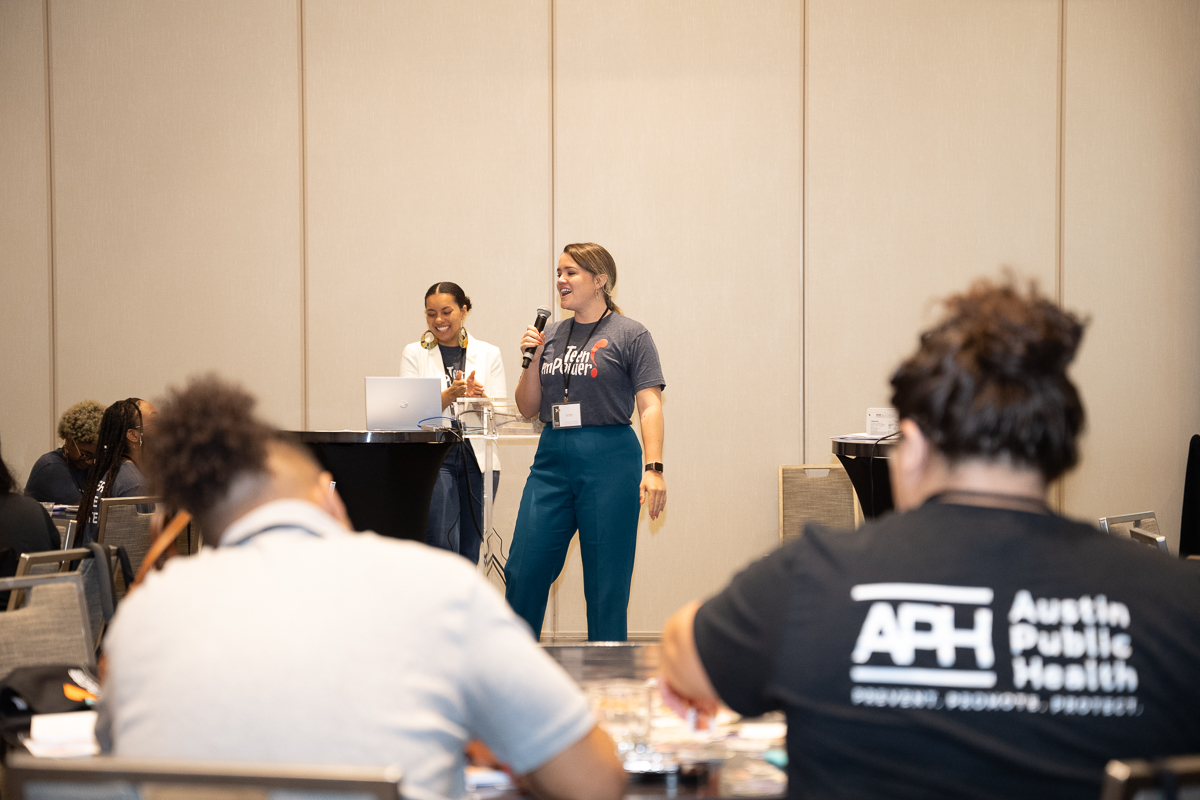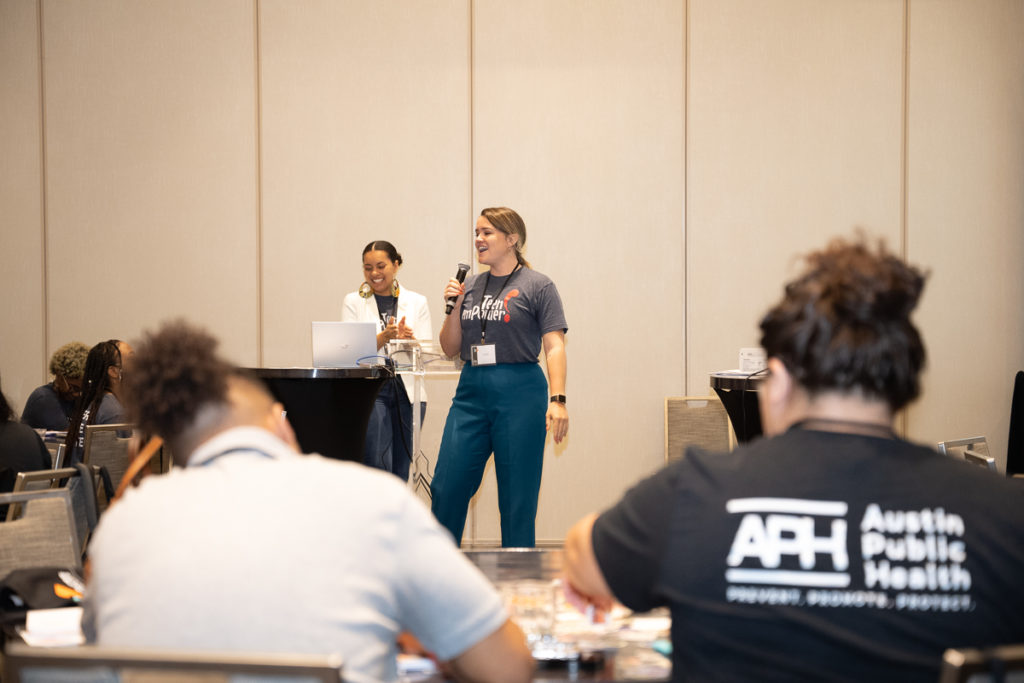Continuing Education Units (CEUs): What Are They & How Can They Benefit You?
Earn up to 17 CEUs at the May 6 – 9 Healthy Futures of Texas Annual Symposium
Statistics show that ongoing professional development leads to faster job progression and improved professional satisfaction. The Healthy Futures of Texas Annual Symposium stands out as an extraordinary convergence of experienced professionals looking to enhance their skills, broaden their knowledge, and earn continuing education units (CEUs) for various licenses.
For those committed to personal and professional development, registering for the Healthy Futures of Texas Annual Symposium is an investment in their future. By attending, professionals not only benefit themselves but also contribute to a larger vision of improved health education and outcomes within their communities.
What CEUs Are Offered? What Are The Benefits?
Overall, CEUs allow professionals to stay updated on best practices, emerging trends, and new technologies in the field. The benefits could be expanded professional development, career advancement, compliance with certification regulations, enhanced effectiveness, patient care, as well as opportunities for networking, collaborations and mentorship.
Here’s a look at the CEUs offered at the Symposium:
Social Work (SW): Healthy Futures of Texas is an approved provider of continuing education credits by The Texas State Board of Social Worker Examiners, provider #6838. The Texas State Board of Social Worker Examiners (TSBSWE) often requires licensed social workers to complete continuing education (CE) credits to maintain their licensure. To ensure compliance with TSBSWE requirements, social workers should review the board’s guidelines and regulations regarding continuing education, including any updates or changes since their last update. Check the specific requirements for your certification.
Licensed Professional Counselor (LPC): Healthy Futures of Texas is an approved provider of continuing education credits by The Texas State Board of Examiners of Professional Counselors, provider #2374. The Texas State Board of Examiners of Professional Counselors (TSBEPC) oversees the licensure and regulation of Licensed Professional Counselors (LPCs) in Texas. LPCs are required to complete a minimum number of CE hours during each renewal period. It’s important for LPCs in Texas to stay informed about any updates or changes to CE requirements from the Texas State Board of Examiners of Professional Counselors. For the most accurate and up-to-date information on CE requirements and credits, contact the board directly or visit their official website.
Continuing Professional Education (CPE): Healthy Futures of Texas is an approved provider of continuing education credits by the Texas Education Agency, provider #902-395. The Texas Education Agency (TEA) oversees the education system in Texas, including the licensure and certification of educators. Continuing Professional Education (CPE) refers to the ongoing training and development required for educators to maintain their certification and improve their professional practice. Educators in Texas, including teachers, administrators, and other school personnel, are required to complete a certain number of CPE hours to renew their certificates or licenses. Educators in Texas should consult the TEA website or contact the agency directly for detailed information on CPE requirements, including any updates or changes to certification renewal guidelines. The TEA provides resources and guidance to help educators meet their CPE obligations and continue their professional development.
Certified In Public Health (CPH): Healthy Futures of Texas is an approved provider of continuing education credits by The National Board or Public Health Examiners. The National Board of Public Health Examiners (NBPHE) oversees the Certified in Public Health (CPH) credential, which is a voluntary certification for public health professionals. CPH professionals are required to complete a specified number of CE hours during each recertification cycle. The number of hours required may vary depending on factors such as the duration of the recertification cycle and any specific requirements set by the NBPHE. CE activities should be relevant to public health practice and cover a range of topics related to the core competencies of public health professionals. These may include epidemiology, biostatistics, environmental health, health policy, social and behavioral sciences, and program planning and evaluation, among others. Visit their website for more information.
Certified Health Education Specialist (CHES): Our program is sponsored by Texas A&M University, a designated provider of continuing education contact hours (CECH) in health education by the National Commission for Health Education Credentialing, Inc. The National Commission for Health Education Credentialing, Inc. (NCHEC) is the organization responsible for certifying health education specialists in the United States. One of the requirements for maintaining the Certified Health Education Specialist (CHES) credential is to obtain Continuing Education Contact Hours (CECH). For the most accurate and up-to-date information on CECH requirements and opportunities for CHES professionals, individuals should refer to NCHEC’s official website and guidelines.
DSHS Community Health Workers – Continuing education credits through Community Health Worker (CHW) Training and Certification Programs offer numerous benefits to CHWs working under the Texas Department of State Health Services (DSHS). Continuing education programs provide CHWs with opportunities to enhance their skills, knowledge, and competencies in various areas of public health and community outreach. Overall, continuing education credits through CHW Training and Certification Programs offer CHWs a pathway to professional growth, advancement, and increased effectiveness in their roles as vital contributors to community health and wellness initiatives. Visit the DSHS website for more information.
Continuing Nursing Education: Continuing Nursing Education CEUs are submitted to Montana Nurses Association for approval to award contact hours. The Montana Nurses Association is accredited with distinction as an approver of nursing continuing professional development by the American Nurses Credentialing Center’s Commission on Accreditation. Continuing Nursing Education (CNE) contact hours accredited by ANCC offer nurses a pathway to lifelong learning, professional growth, and excellence in patient care. Nurses who hold specialty certifications, such as those offered by ANCC, often need to accumulate a certain number of continuing education contact hours to maintain their certification status. CNE contact hours accredited by ANCC fulfill these requirements and help nurses remain certified in their specialty areas of practice. By participating in accredited CNE activities, nurses can maintain their licensure, advance their careers, and continue to provide high-quality, evidence-based care to their patients.




